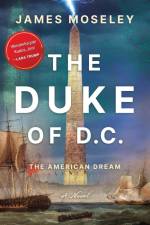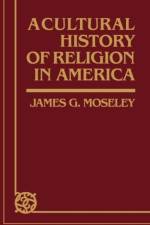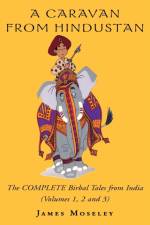av James Moseley
287
The Mystery of Herbs and Spices offers 53 tell-all biographies of celebrated spices and herbs. Tales of war, sex, greed, hedonism, cunning, exploration and adventure reveal how mankind turned the mere need for nourishment into the exaltation of culinary arts. Is it a spice or herb? Where does it come from and what causes its taste? What legends or scandals embellish it? To what curious uses has it been put? How can you use it today? Neither a cookbook nor dry scholarship, the book employs anecdotes and humor to demystify the use and character of every spice or herb.Sample chapters from The Mystery of Herbs and Spices follow.INTRODUCTION"Better is a dinner of herbs where love is, than a fatted calf with hatred."- Proverbs 15:17Herbs and spices. They impart glory to food, and variety to life. They are what separate the mere cook from the gourmet.But they can be confusing. What is the difference between a herb and a spice? What foods do they go with? And don't you feel silly, not knowing if you are supposed to say "herb" or "erb"?You might think a gourmet, who understands such things, is a sort of wizard - that's what people thought in the Middle Ages, when users of herbal medicines were accused of witchcraft and burnt!But to people who grow up in India or Thailand, exotic spices are common. They use a wealth of seasonings as casually as we scatter ketchup and pepper.Cooking with cardamom or cumin might seem a mystery of subtle kitchens, but did you know that ordinary pepper was once precious and rare? If you lived in Europe seven hundred years ago, you could pay your rent or taxes in peppercorns, counting them out like coins. You could have bought a horse for a pound of saffron; a pound of ginger would get you a cow; and a pound of nutmeg was worth seven fat oxen. If you were an exceptionally lucky bride, your father might give you peppercorns as a dowry. Now consider how casually we dash a bit of pepper over a fried egg today!Like anything else, herbs and spices are easy to use when you are familiar with them. But, like nothing else, the story of spices is laced with adventure.Ferdinand Magellan launched the first voyage around our planet. By the time he reached the Pacific Ocean, he had been out of touch with civilization for a year. Sailing from the west coast of South America, he headed out onto a briny desert of burning glass. He had no maps. He had no radio. He had ridiculously small and leaky ships. He was going where no one had ever gone before. The hissing swells of the Pacific would take him four frightening months to cross, without laying eyes once on land.There would be nothing like this adventure for another five hundred years - not until our exploration of space.Magellan died out there in the unknown. Only eighteen of his 237 sailors straggled back to Spain.What did they have to show for it?Silver?Gold?Scientific discoveries?No.nutmegs and cloves! Twenty-six tons of them - enough to pay for the entire cost of the voyage and make a profit of 500 gold ducats for every shareholder.No one doubted for one second that the whole adventure had been worth it!Spices. They enhance our food. That's all.But, since the human race began to dream, the story of spices has enchanted our fantasy as well.Where do they come from? Why are they so enticing? In what new ways can we use them?This is a book of discovery. Unfurl your sails, like Magellan, and follow the fragrance of spices and herbs to their source, gather their lore, and let them not only season your cooking, but enrich your enjoyment of life.PETER PIPERIf Peter Piper picked a peck of pickled peppers,How many pickled peppers did Peter Piper pick?It might seem funny now, but it wasn't funny at the time.Pierre Poivre of Lyons, France, otherwise known as Peter Pepper or Peter Piper, was a real person. Born in 1719, he started his career as a Christian missionary, and founded a bank in Vietnam. In 1766 he became Governor of Isle de Fr




